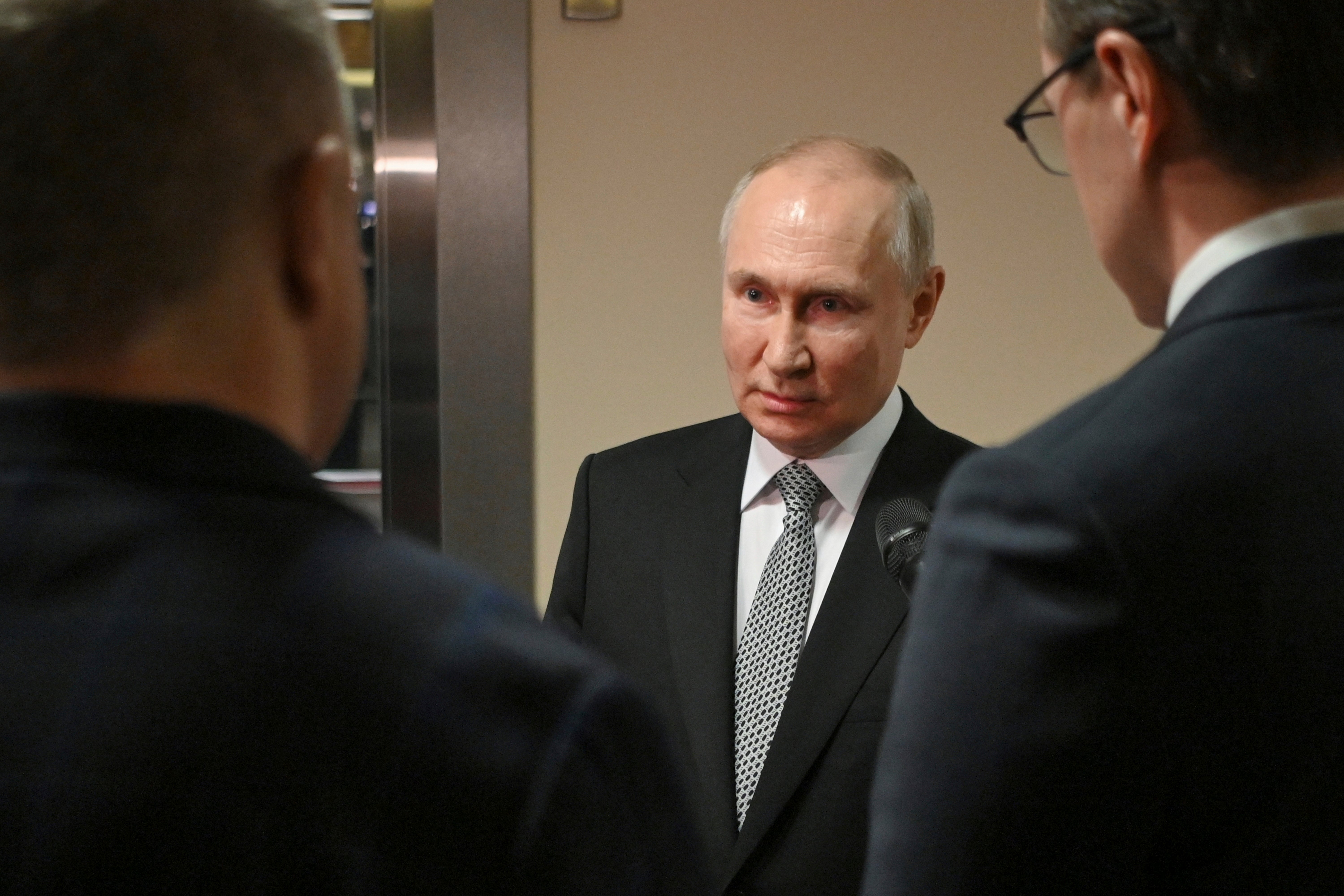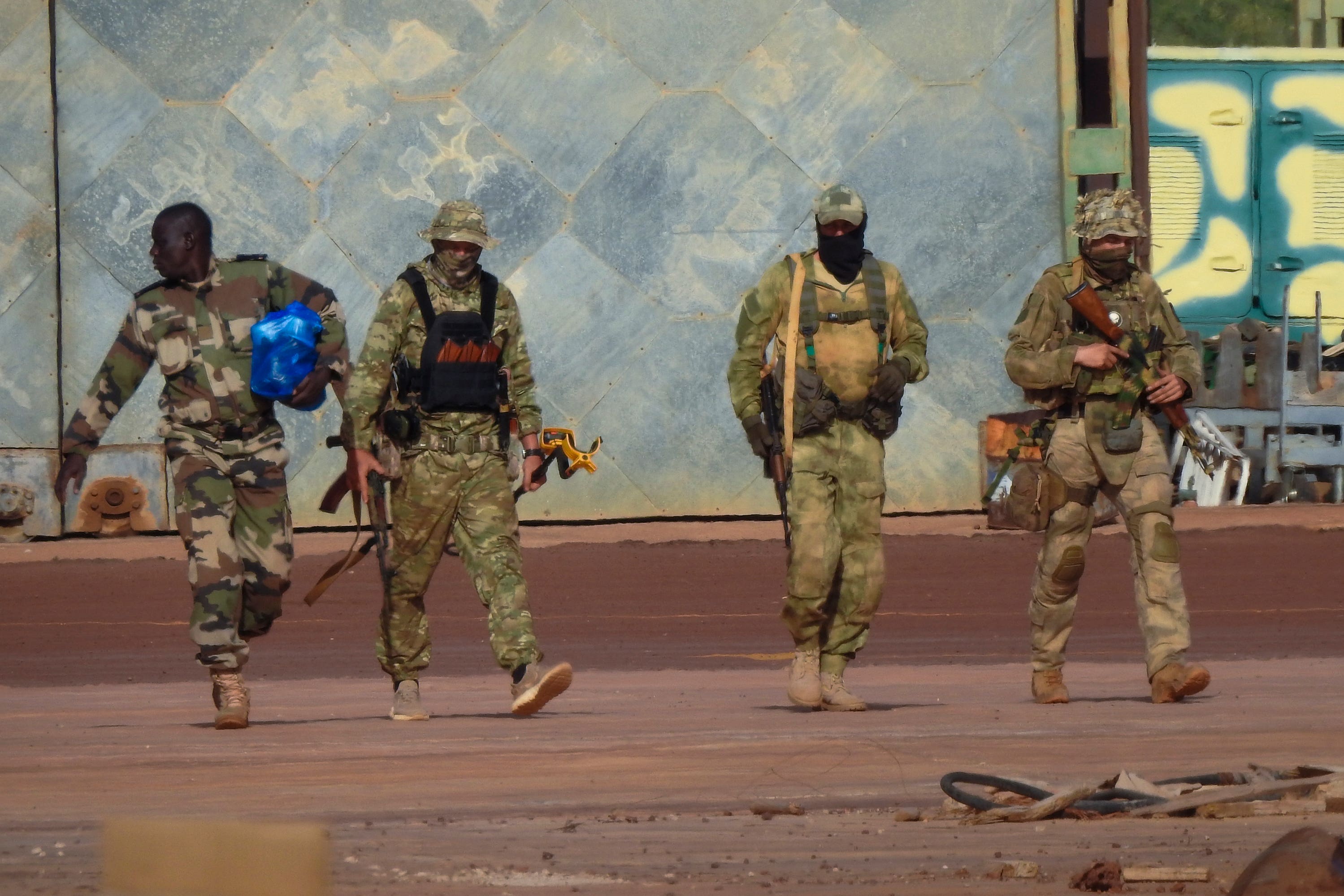Wagner gold smuggling critical to keeping Russia’s economy afloat, MPs say
Parliamentary report also criticises the ‘remarkably complacent’ attitude of the government to Wagner’s activities across the last decade
Your support helps us to tell the story
From reproductive rights to climate change to Big Tech, The Independent is on the ground when the story is developing. Whether it's investigating the financials of Elon Musk's pro-Trump PAC or producing our latest documentary, 'The A Word', which shines a light on the American women fighting for reproductive rights, we know how important it is to parse out the facts from the messaging.
At such a critical moment in US history, we need reporters on the ground. Your donation allows us to keep sending journalists to speak to both sides of the story.
The Independent is trusted by Americans across the entire political spectrum. And unlike many other quality news outlets, we choose not to lock Americans out of our reporting and analysis with paywalls. We believe quality journalism should be available to everyone, paid for by those who can afford it.
Your support makes all the difference.Russia’s economy is being kept afloat by “critical” gold-smuggling operations by the Wagner mercenary group led by its founder Yevgeny Prigozhin, a parliamentary report has suggested.
The report by the foreign affairs committee said that Mr Prigozhin’s Wagner Group is smuggling “significant” quantities of the precious metal out of Sudan.
The private military company (PMC) has been simultaneously supporting Sudan’s RSF paramilitary group and its army forces since conflict erupted between the military factions in April, the committee said.
Against this backdrop, Wagner has siphoned off large quantities of gold to prop up the Russian economy, which has been heavily hit by Western sanctions in the wake of Vladimir Putin’s invasion of Ukraine, which began last February.
The future for Wagner is uncertain after a failed mutiny that shook Mr Putin and the Kremlin last month. Mr Prigozhin has suggested his fighters will play no further part in the Ukraine war – for now – but “there will be no reduction in [Wagner’s] programmes in Africa”.
The report also criticised the government’s response over the last decade to the emerging threat posed by Wagner and other PMCs. The risk from their activities was “under-played and under-estimated”, as well as the security implications for Europe.
Calling on Wagner to be proscribed as a terrorist organisation, the committee said its activities in Sudan were “mainly” non-combat. Instead, it focused on providing a support force for the Bashir regime and guarding its business interests.
At the same time as maintaining “close ties” with Sudan’s military, Wagner has also provided the RSF with training and intelligence, the report found.
“Despite the network’s denials, it appears to remain active in Sudan, supporting rebel paramilitaries [the RSF] in the ongoing conflict, which broke out on 15 April 2023,” it read. “Wagner’s gold-smuggling operations from Sudan are significant, with one [analyst] calling them ‘critical to Russia’s ability to withstand the significant sanctions deployed against it for its illegal invasion in Ukraine’.”
The report lays bare the width and depth of Wagner’s involvement in Russia’s foreign policy, and is especially critical of the UK government for being “remarkably complacent” about the group’s activities for almost 10 years.

As well as Sudan and its well-documented activities in Ukraine, the report said that Wagner mercenaries have been active in Syria, the Central African Republic, Libya, Mozambique and Mali.
It warned that PMCs are a growth industry, with more governments seeking to create them in an effort to secure their security and economic interests.
The report – which also named various Wagner mercenaries whom it said should be sanctioned – called for a more coordinated response from the government, and said that a taskforce should have been established by 2016 at the latest.
The committee is calling on the government to assess urgently whether the threshold for sanctions against the individuals and entities named in the report is met. The report urges the government to move faster and harder in sanctioning Wagner-linked actors, and to consider action against civilian enablers and corporate “frontmen”.
It also branded the current voluntary model of PMC regulation insufficient, and said that things need to change urgently. This is because it does little to prevent “activities of disreputable companies” that are “detrimental to the United Kingdom’s interests”.
Committee chair Alicia Kearns said the “landmark” report “exposes the dark underbelly of a network that until recently thrived in the shadows”.
“In the 10 years since the Wagner network’s formation, the UK government has lacked a coherent strategy and efforts to meaningfully tackle Wagner have been non-existent. This has allowed the network to grow, spread its tentacles deep into Africa, and exploit countries on their knees due to conflict or instability.”

She added: “We are deeply concerned by the government’s dismal lack of understanding of Wagner’s hold beyond Europe, in particular their grip on African states. This is a fundamental failing of joined-up government; ministers appear to be in denial about the consequences of failing to tackle this malign business model before it takes hold.
“If we are to undermine the operations of the Wagner network, we need to sever the network’s wealth at its source. We are calling for the government to sanction organisations and individuals known to prop up Wagner – faster and harder than before.”
She said that in the wake of the 24-hour aborted mutiny, “the future manifestations of the Wagner network are uncertain”. This has left it at its “most vulnerable – and the clock ticking”, she added. “The time for action is now.”





Join our commenting forum
Join thought-provoking conversations, follow other Independent readers and see their replies
Comments